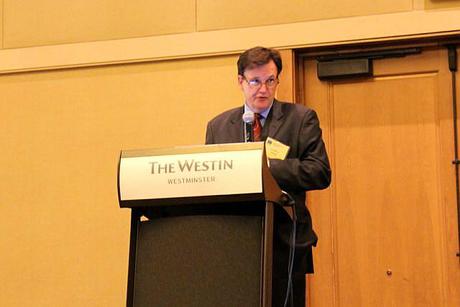International sharing and collaboration

Sharing of information is essential to achieve the best possible public safety mobile broadband capability.
The last couple of months have been a busy time for the international mission-critical public safety communications community. We have seen the Australian Productivity Commission announce its terms of reference to study how a mobile broadband capability can be provided for Australia’s public safety agencies (PSAs). The Canadian government announced decisions resulting in 20 MHz of broadband spectrum in the 700 MHz band, initial funding towards providing a mobile broadband capability long sought by Canada’s PSAs and the opportunity for alignment with the FirstNet project in the United States.
The International Telecommunications Union announced the Agenda for the World Radio Conference to be held later this year, where it appears there will be a resolution proposing more study of the impact of mobile broadband on personal protection and disaster response (PPDR) spectrum. In the United Kingdom, the Home Office continued with the tender process for the Emergency Services Network Project to select a commercial provider of a new mobile broadband network for the UK’s PSAs. Across Europe, consideration continues to be given to how a public safety mobile capability can be provided to Europe’s PSAs based on 20 MHz of spectrum provided for this use.
The international mission-critical public safety communications community continues to closely watch both the FirstNet Project and the Emergency Services Network Project for the lessons to be learned as a result of the different approaches being taken. This community could just as easily become very interested in the Australian Productivity Commission.
There already exists a massive body of global information and knowledge produced by industry associations, standards bodies and research organisations about how to provide PSAs with a mission-critical mobile broadband capability. This body of knowledge has informed decisions made by governments, bureaucracies and regulators about the allocation and use of scarce resources, ie, spectrum and funding, required to deliver services that meet ever-increasing community expectations and at the same time build community resilience.
Perhaps, then, instead of producing another study, the Productivity Commission should be collecting, analysing and synthesising the findings, recommendations and outcomes from this existing body of information and knowledge. In this way, it could produce an Australian contribution to the conversation about how the world’s emergency management sector might best be provided with a mission-critical public safety mobile broadband capability.
Australia’s contribution could be significant in a period where strategic investment decisions are being made that will impact the global direction of mission-critical public safety communications for decades to come. This contribution could be used to enable Australia’s states and territories to make informed decisions that can be implemented in a coordinated manner to build a national public safety mobile broadband capability, as part of a broader mission-critical communications ecosystem meeting the immediate needs and future expectations of our communities in the most economic and socially effective manner.
The more exposure we can give to these decisions through international sharing and collaboration to enhance the understanding, relevance and application of information and knowledge on which these strategic decisions can be based can only result in better outcomes for everyone.
Why P25 technology remains a good fit for public safety communications
Digital LMR technology ensures police officers, firefighters and emergency management teams can...
From past to present: leveraging satellite data for better disaster resilience
Whether monitoring flood-prone regions or assessing wildfire-prone landscapes, historical...
Lancashire Police adds in-car video to full vehicle fleet
Motorola Solutions' M500 in-car video solution observes a vehicle's environment from...





